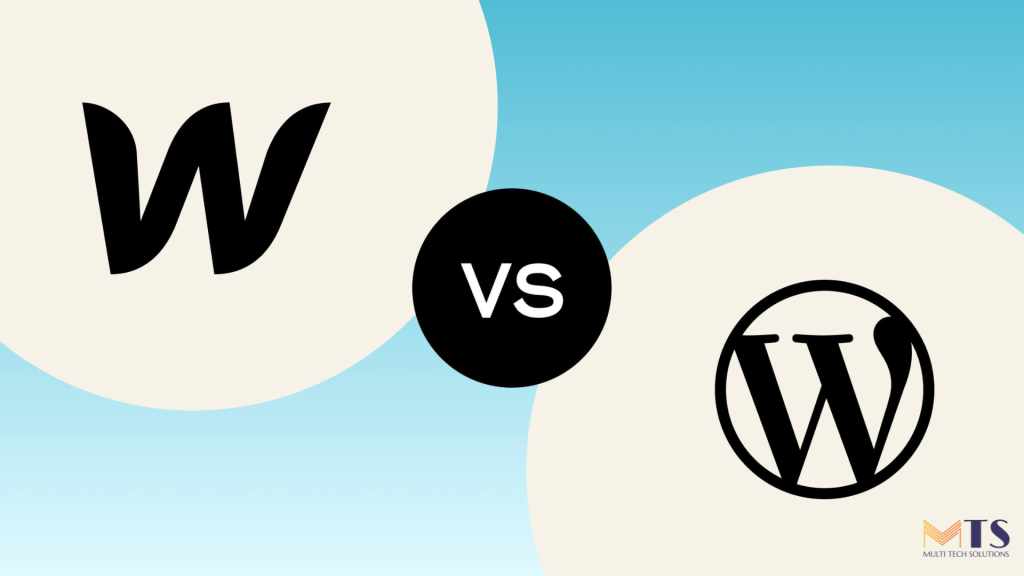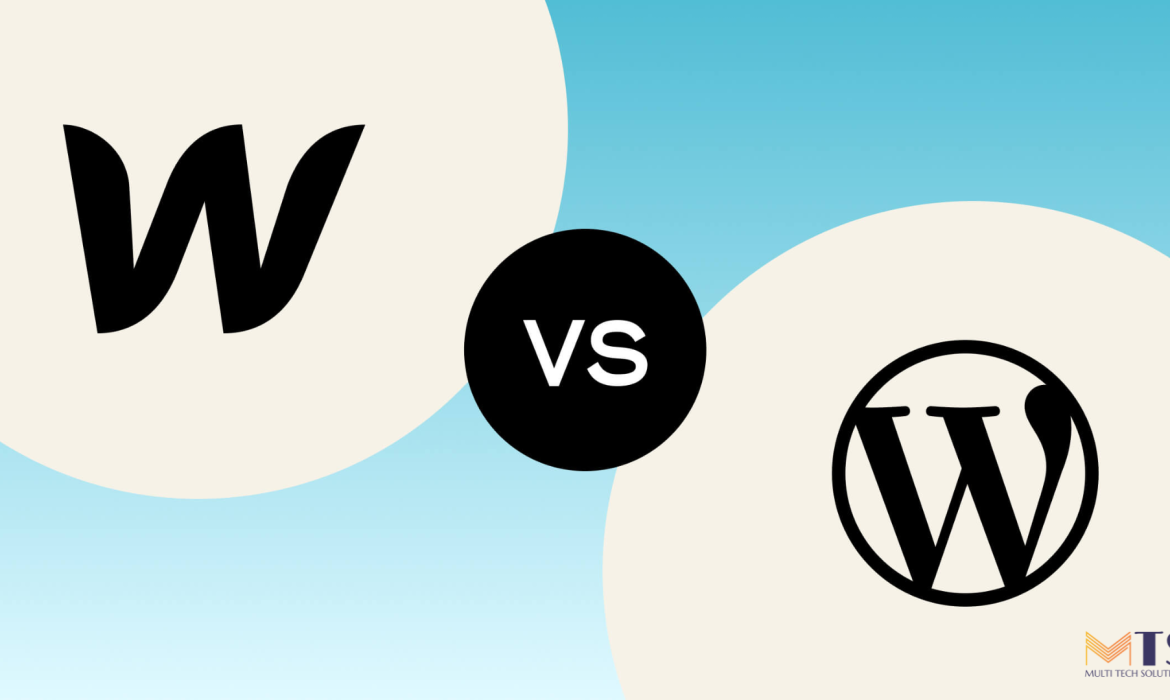
Introduction:
When it comes to creating a powerful online presence, in Houston, Texas, businesses have numerous website development platforms at their disposal. Among the top contenders are Webflow and WordPress, each with its unique strengths. As a leading web development agency in Houston, Texas, we understand the importance of choosing the right platform. In this blog post, we’ll delve into a comprehensive comparison of Webflow and WordPress, highlighting their respective advantages, SEO-friendliness, and why businesses in Houston, Texas, should consider our agency for their website development needs.
1. User-Friendly Interface and Design Flexibility:
Discuss how Webflow’s drag-and-drop interface enables easy and intuitive website creation without the need for coding knowledge. Compare this with WordPress’s learning curve, which often requires plugin installations and customizations. Emphasize how our agency’s expertise in Webflow can deliver visually stunning and responsive websites tailored to Houston, Texas, businesses’ specific needs.
2. SEO Optimization:
Explain the SEO-friendly features of both platforms. Discuss Webflow’s clean code output, mobile responsiveness, and built-in SEO tools, which contribute to improved search engine rankings. Contrast this with WordPress, where plugins might be necessary for advanced SEO functionalities. Highlight how our agency’s proficiency in Webflow ensures that Houston, Texas, businesses can gain better organic visibility in local search results.
3. Customization and Scalability:
Explore Webflow’s design freedom, allowing for highly customizable websites to match each business’s branding and personality. Compare this to WordPress, which might require more extensive custom development to achieve a similar level of uniqueness. Our agency’s expertise in Webflow development guarantees Houston, Texas, businesses an exclusive online presence, scalable to accommodate growth.
4. Speed and Performance:
Discuss Webflow’s server-side rendering capabilities, leading to faster load times and optimized performance. Point out that WordPress might require additional optimization efforts to achieve comparable speed. Stress how our agency’s focus on Webflow development can ensure Houston, Texas, businesses achieve high-performing websites that captivate users.
5. Maintenance and Security:
Explain how Webflow’s managed hosting and automatic updates relieve businesses from dealing with technical maintenance tasks. Contrast this with WordPress, where website owners might need to manage updates and security measures, potentially leading to downtime. Assure Houston, Texas, businesses that our agency can provide reliable Webflow solutions, minimizing risks and maximizing website uptime.
6. E-Commerce Capabilities:
Highlight Webflow’s seamless e-commerce integration, enabling Houston, Texas, businesses to set up online stores efficiently. Compare this with WordPress’s reliance on third-party plugins, which might introduce complexities and security risks. Our agency’s proficiency in Webflow can ensure smooth e-commerce functionality for Houston, Texas, businesses seeking to expand their online sales.
Conclusion:
Summarize the key differences between Webflow and WordPress, emphasizing how our Webflow development agency is the ideal partner for Houston, Texas, businesses seeking the best website development solution. By leveraging Webflow’s user-friendly interface, SEO-friendliness, customization capabilities, and performance optimization, we can help Houston, Texas, businesses stand out in the competitive digital landscape. Whether you’re a startup or an established company in Houston, Texas, choosing our agency for Webflow development ensures a seamless, visually stunning, and search-engine-optimized website that drives growth and success.
Frequently Asked Questions (FAQs):
1. What differentiates Webflow from WordPress in terms of website creation?
Webflow stands out with its user-friendly drag-and-drop interface, allowing easy website creation without coding knowledge. In contrast, WordPress may require plugin installations and customizations, leading to a steeper learning curve. Our Houston, Texas-based agency’s expertise in Webflow ensures visually stunning and responsive websites tailored to specific business needs while eliminating the complexities often associated with WordPress development.
2. Which platform offers better SEO optimization for Houston, Texas, businesses?
Webflow excels in SEO optimization with clean code output, mobile responsiveness, and built-in SEO tools, contributing to improved search engine rankings. WordPress may rely on plugins for advanced SEO functionalities. Our agency’s proficiency in Webflow development guarantees better organic visibility in local search results for businesses in Houston, Texas, compared to WordPress-based websites.
3. How do Webflow and WordPress differ in terms of customization and scalability?
Webflow provides design freedom and high customizability, allowing businesses in Houston, Texas, to create unique websites that align with their branding and personality. In contrast, WordPress might require more extensive custom development to achieve a similar level of uniqueness. Our agency’s expertise in Webflow ensures exclusive online presences for Houston-based businesses, scalable to accommodate future growth.
4. Which platform offers better website speed and performance for Houston, Texas, businesses?
Webflow’s server-side rendering capabilities lead to faster load times and optimized performance, while WordPress might need additional optimization efforts to match the speed. Our Houston, Texas, agency focuses on Webflow development, ensuring high-performing websites that captivate users and deliver a seamless browsing experience.
5. How do maintenance and security differ between Webflow and WordPress?
Webflow’s managed hosting and automatic updates relieve businesses from technical maintenance tasks, while WordPress site owners might need to manage updates and security measures, potentially leading to downtime. Our agency’s Webflow solutions for Houston, Texas, businesses ensure reliable and secure websites, minimizing risks and maximizing website uptime.




